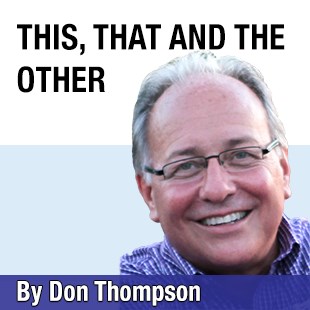
(DON THOMPSON / iNFOnews.ca)
January 13, 2025 - 12:00 PM
OPINION
Getting someone to confess to a murder in Canada is neither easy…nor should it be. It’s especially challenging when those murders have gone unsolved…so-called “cold cases” in law enforcement parlance.
But for the last 60 years, law enforcement agencies in Canada have used what judicial insiders call the “Mr. Big” technique to get confessions in homicide and other high-profile felonies.
The Royal Canadian Mounted Police (RCMP) in British Columbia first used what would become known as Mr. Big in 1965 to prosecute David Louis Harrison, a former Vancouver police constable. He was tried and convicted of helping rob $1.2 million of cancelled currency from the Canadian Pacific Merchandise Services warehouse in Vancouver.
Since then, the Mr. Big ploy has been used more than 400 times in Canada…and remains in wide use today. It works like this: police create a fictitious criminal organization, then seduce someone they suspect of a previous heinous crime into joining their fake crime family through a series of well-produced confidence schemes.
So, they target a suspect by having an undercover officer try to befriend them…pretending to share an interest, for example, in fishing or playing pool…even just hanging out in bars. Over weeks and months, they gain the suspect’s confidence before recruiting them into a series of small job…criminal acts - all fake - for which they are paid.
The crimes might involve a money drop, credit card scam, selling weapons…again all fake with undercover cops playing the so-called gang or organized crime family members. But as the pretend criminal operation’s assigned crimes escalate, invariably something goes wrong by design…ultimately the police-posing-as-criminals make sure the newly recruited criminal knows something that could implicate Mr. Big.
The suspect is then asked to give up something to Mr. Big…confess to a serious crime from the past…like murder. That way, the crime organization - again, not real - explains that the suspect can be trusted not to turn on Mr. Big. The RCMP says what happens next - about 95 percent of the time - is they get a confession and conviction…often for a murder or another serious crime.
That’s the way it can work…getting a conviction on a long-standing heinous crime. Of course, getting a conviction and justice aren’t synonymous.
The problem is such confessions might well lead to convictions…but because those confessing are being played…they might not have done the actual crime. Many consider the ploy coercion. It is outlawed in the U.S., U.K., France and Germany, for example.
The target of Mr. Big operations might not be Canada’s best citizens…but they might not be murderers either. Most have paid the price of other lesser crimes…serving time in jails or prison…and find themselves unemployable, living in poverty…desperate.
The promise of $100 to simply drop a package…that escalates to $200 for another perceived illegality a few weeks later…and then the possibility of full-time employment in a gang or crime family that promises protection…can turn a poor, desperate man’s head.
It’s a question not only of the truthfulness of a confession, but of the use of public resources and ethical police conduct.
The Supreme Court issued a ruling in July 2014 in R. v Hart, outlining a framework for trial courts to assess Mr. Big operations. The judgment required stricter rules for police and set a higher standard for any evidence to be admitted when obtained in Mr. Big operations.
With that ruling, some predicted an end to Mr. Big, but that hasn’t happened based on trial court rulings since the Supreme Court decision a decade ago.
Today, the Crown must establish “on a balance of probabilities that the probative value of the confession outweighs its prejudicial effect.” In other words, in proving a fact, the police cannot step over the line…prejudicing a case. The onus, however, is on the defence to show that police engaged in an abuse of process…and that’s a high standard that isn’t often met.
What has happened is that Mr. Big operations have morphed into variations that are in a legal grey area at best. Some police have veered away from the traditional Mr. Big sting. As long as the police don’t threaten the target and there’s not a face-to-face with Mr. Big, evidence gathered through this ruse is largely admissible.
Another fly in the ointment is that police-induced false confessions are among the leading causes of wrongful convictions, according to falseconfessions.org, especially in homicide cases.
Further, there have been 317 post-conviction DNA exonerations in the U.S. in the past 40 years. All 317 confessed to the crimes - not in outlawed Mr. Big schemes - but all homicides and other serious felonies. Why people confess to serious crimes like homicide is a separate question…but they often do.
Canadians deserve justice…not merely convictions. It’s simply not enough that a cold case be closed. It doesn’t mean much if another injustice happens in seeking justice. How much is spent in these often elaborate ruses…money, resources? Should law enforcement use schemes more suited to a television or movie crime story?
The U.S., U.K., France and Germany don’t allow any versions of Mr. Big to solve crimes. Maybe Canada should turn the page, as well.
— Don Thompson, an American awaiting Canadian citizenship, lives in Vernon and in Florida. In a career that spans more than 40 years, Don has been a working journalist, a speechwriter and the CEO of an advertising and public relations firm. A passionate and compassionate man, he loves the written word as much as fine dinners with great wines.
We welcome your comments and opinions on our stories but play nice. We won't censor or delete comments unless they contain off-topic statements or links, unnecessary vulgarity, false facts, spam or obviously fake profiles. If you have any concerns about what you see in comments, email the editor.
News from © iNFOnews, 2025